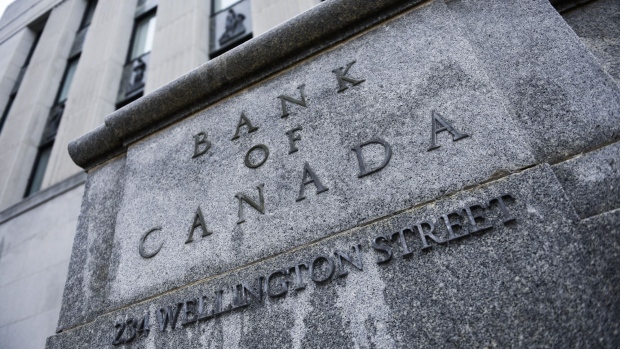Jul 12, 2023
Key Takeaways From Bank of Canada’s Decision to Raise Rates to 5%
, Bloomberg News

(Bloomberg) -- The Bank of Canada raised its overnight lending rate by 25 basis points to 5% on Wednesday in Ottawa. The move, which was expected by a majority of economists in a Bloomberg survey, brings benchmark borrowing costs to their highest in 22 years. Here are the key takeaways:
- Policymakers led by Governor Tiff Macklem flagged surprisingly strong consumption growth, more persistent excess demand in the economy and stubborn underlying price pressures in explaining their decision to hike for a second straight meeting after abandoning their conditional pause.
- Officials said they would continue to assess incoming data and “remain resolute” in their commitment to curbing inflation, but offered no explicit guidance in their statement on the future path of rates. “We will be evaluating whether the evolution of excess demand, inflation expectations, wage growth and corporate pricing behavior are consistent with achieving the 2% inflation target,” they said.
- Macklem and his officials pushed back their timeline for restoring price stability by six months. Headline annual inflation is now forecast to linger around 3% for another year before falling to the 2% target by the middle of 2025. The accompanying monetary policy report shows excess demand is expected to continue for nine months longer than previously forecast, with the output gap now seen closing early next year.
- The bank expects the economy to slow as its hikes work their way through the financial system, with growth averaging about 1% over the next 12 months. Gross domestic product is set to expand 1.8% this year, up from 1.4% forecast in April, before falling to 1.2% next year and then rebounding to 2.4% in 2025.
- High levels of immigration under Prime Minister Justin Trudeau have resulted in robust population gains in Canada, which the central bank sees helping support surprisingly strong demand in the economy. It’s also a factor in the rebound in both housing sales and prices — previously unforeseen strength that the bank said is likely to persist and fuel inflation.
©2023 Bloomberg L.P.






